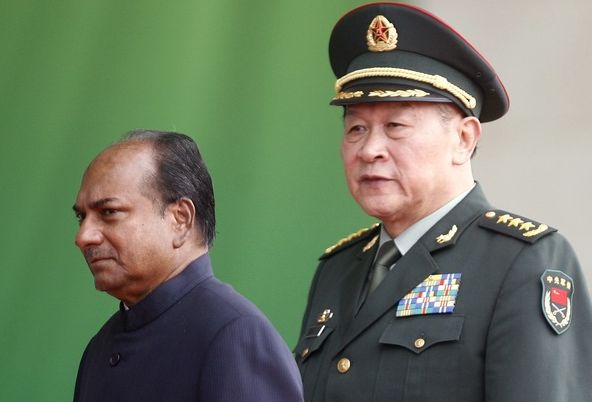Top Chinese and Indian military officials vowed to boost cooperation between the Asian giants during a rare visit by the head of India’s army, state media reported.
General Bikram Singh, the first Indian army chief to visit China since 2005, held talks Thursday with Fan Changlong, the vice chairman of China’s Central Military Commission, the official Xinhua news agency reported.
Relations between the rising powers are generally positive but have suffered from lingering distrust over an unresolved border dispute and a brief war a half century ago.
The frontier issue flared up again in April last year with New Delhi accusing Chinese troops of intruding nearly 20 kilometres (12 miles) into Indian-claimed territory, triggering a three-week standoff that was resolved when forces from both sides pulled back.
“Our common interests far outweigh our differences,” Fan told Singh. “Both countries have sufficient wisdom and capability to deal with historical problems.”
Singh stressed that the two countries were not rivals, the report said, and military communication and interaction were important to make sure the border areas were peaceful.
Xinhua said that Singh’s visit, following India’s new Prime Minister Narendra Modi taking office in May, “is regarded as a positive signal from India to interact with China’s political and military leaders”.
China’s willingness to stress cooperation with India over their dispute contrasts with the harder line Beijing has taken in maritime disputes in the South China Sea with the Philippines and Vietnam and the East China Sea with Japan.
China and India are both members of the BRICS grouping, along with Brazil, Russia and South Africa, and Singh’s four-day visit follows one last week by Indian Vice President Mohammad Hamid Ansari.
Singh also met Fang Fenghui, chief of general staff of the Chinese People’s Liberation Army, Xinhua said.
Fang said the two sides should expand cooperation in areas including joint exercises, peacekeeping and anti-terrorism, the report said.
“Both sides should strengthen border control to prevent disruptions to the broader military-to-military relationship and bilateral ties,” Fang said.








